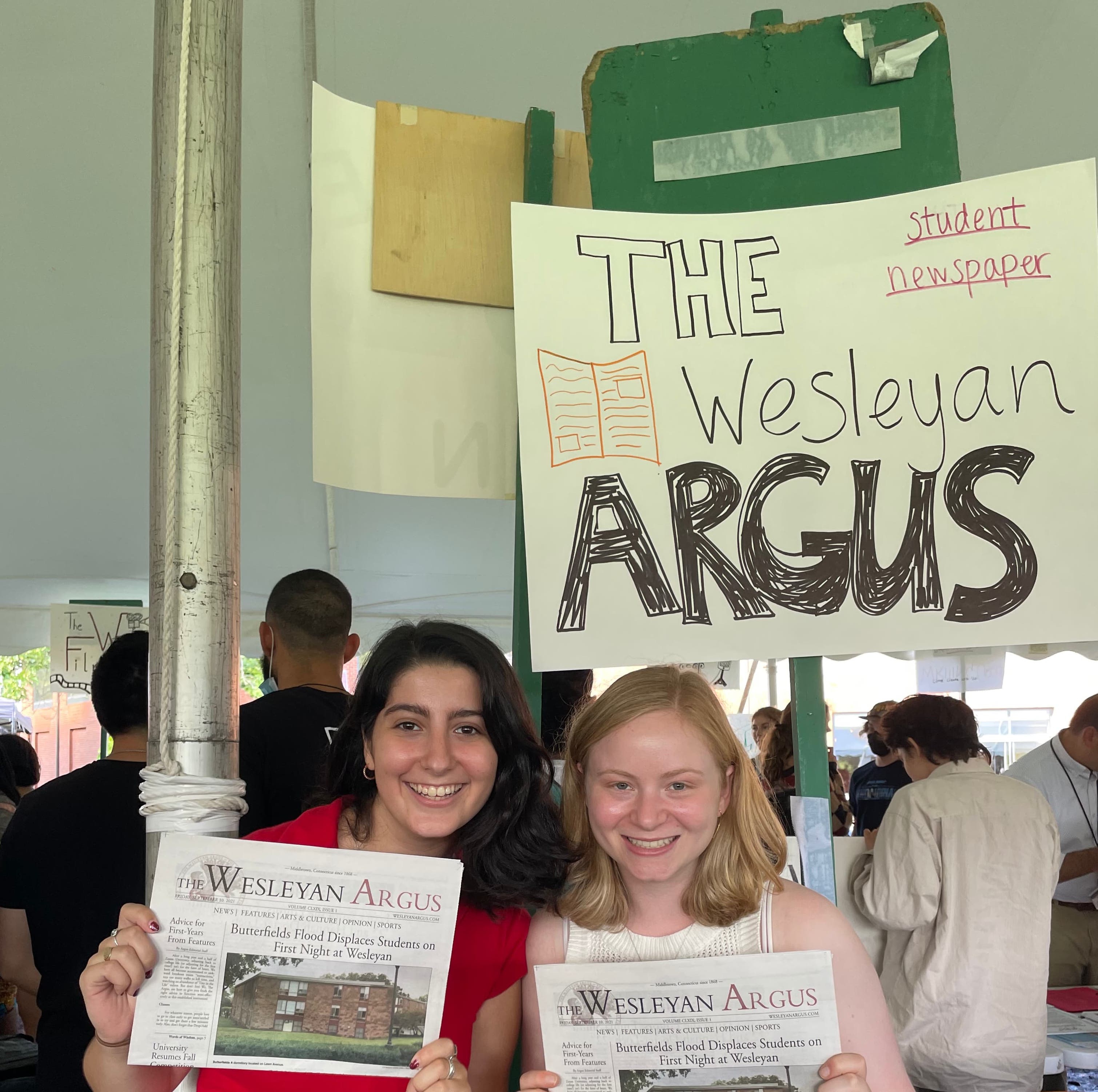
c/o Oliver Cope, Executive Editor
As a first-year, one of the first things I did was sign up to write for The Argus. My high school didn’t have a student newspaper, and I had Rory Gilmore-esque dreams of being an editor.
Too nervous to conceptualize attending the first meeting, I talked myself out of going. I worried I wouldn’t be able to find the office by myself all the way on the far end of Broad Street.
Once I mustered up the courage to attend a meeting, I was so glad that I did. I found a writing style that challenged me and worked with editors who held me accountable to deadlines and standards of quality. Over time, the people I met on this paper grew into my mentors and friends, people who let me steal their umbrellas during torrential downpours of rain so that even if they got soaked, I wouldn’t.
I cannot pretend that The Argus is not a big commitment. It claims any and all hours not spent on academic work, and sometimes even takes up hours that I don’t have to spare. But nothing beats the feeling of working with The Argus staff, experiencing production nights, or seeing an article I wrote on the front page. These are memories that I will carry with me for a long time.
All that being said, the fact that I spend two nights a week in the office on Broad Street instead of dancing at bar night or playing Wii with my friends in the living room of our wood-frame house is worth it. I am simply putting back into this paper a fraction of what it has given me.
While the role of editor-in-chief is a job, one that certainly carries with it enormous responsibility, this position has offered me the opportunity to reflect on both my time on the paper and on The Argus as an entity. Before the COVID-19 pandemic sent us home in the Spring 2020, no one could have fathomed that we would spend the next year producing a paper entirely virtually, finding ways to recruit new writers and engage a community over zoom, and only gathering in person masked and bundled up in Fountain Avenue backyards. Yet, despite all the obstacles, we bounced back and have now returned to an in-person, twice-weekly production schedule where we are looking into a new and bright future for this paper.
With this last issue of the semester, I leave the position of editor-in-chief excited for the future of the paper, whatever that may look like. I cannot, however, ignore the complicated history of the paper or the disappointing reality that a significant portion of the student body continues to view The Argus in a negative light.
There are times when it feels like the people who have never read The Argus are its harshest critics, but simultaneously, I know that this paper needs to be read with a critical eye.
While I don’t necessarily have a solution, I will offer my thoughts in response.
The Argus is not perfect.
I will not argue that it is, nor will I try to convince you otherwise. We have deep systemic issues rooted in the fact that not that long ago, The Argus was an entirely white, entirely male publication. While the past four years have seen a notable increase in diversity among the masthead and especially in The Argus’ leadership, we have significant room to grow.
We continue to make mistakes when deciding what is on the front page, and sometimes important developments don’t get coverage at all. We are trying and improving with every semester that passes.
My request to you, readers of The Argus, is that if you want to see change, say something. We cannot progress without your input. If you have a question about the University you want answered, or want us to report on something happening on campus, say something. If you weren’t happy with what received front page status, tell us why. If you have specific issues with the way we wrote about a subject, contact the staff.
You are the reason we publish this paper, and without you, we would not exist.
So, as I sign off from my semester as editor-in-chief, I want to thank the Wesleyan community for giving this paper a purpose and for allowing me to grow in a community of people who believe in the capacity of journalism to make this campus a better, more accountable place.
Hallie Sternberg can be reached at hsternberg@wesleyan.edu or on Twitter @halsternberg.